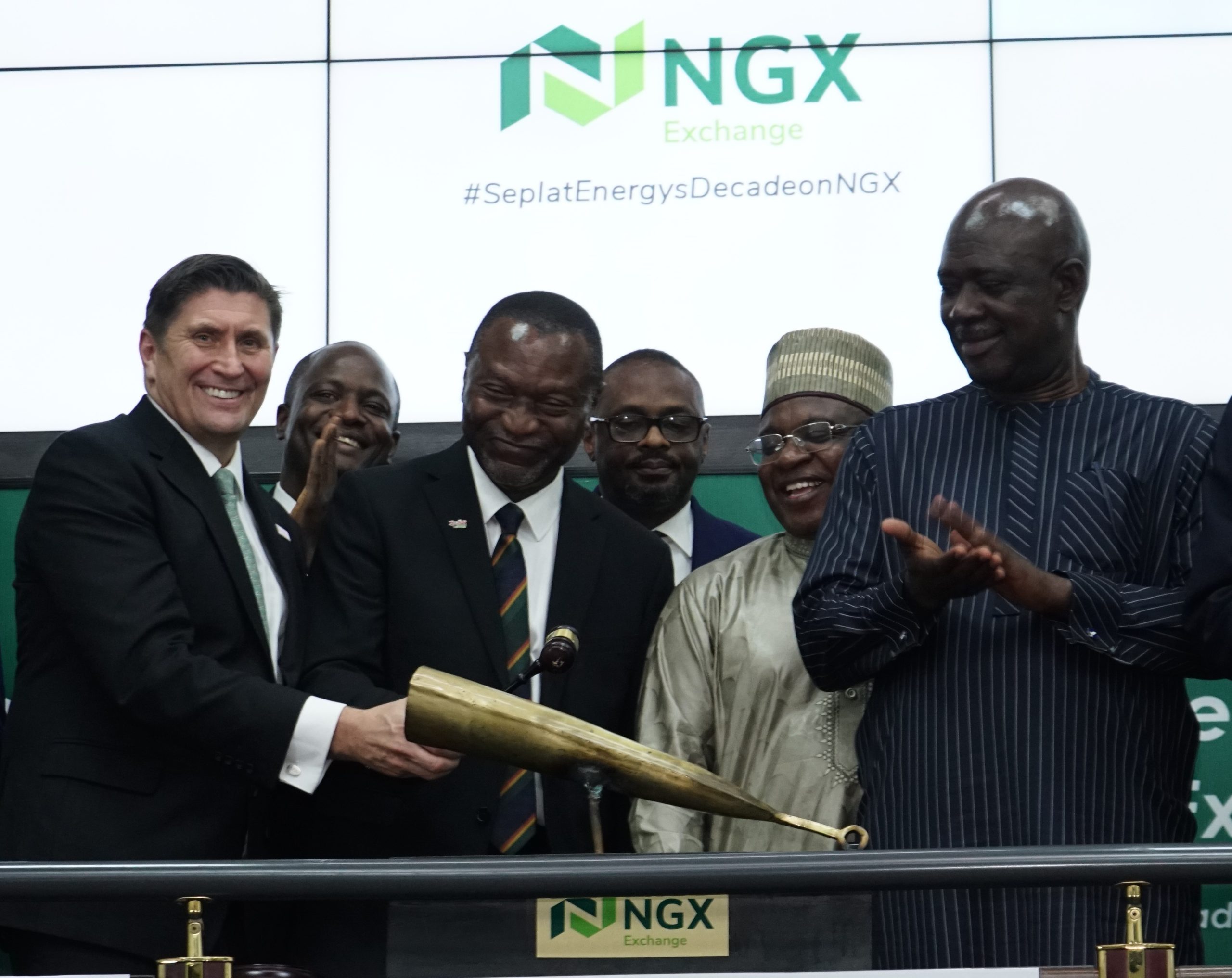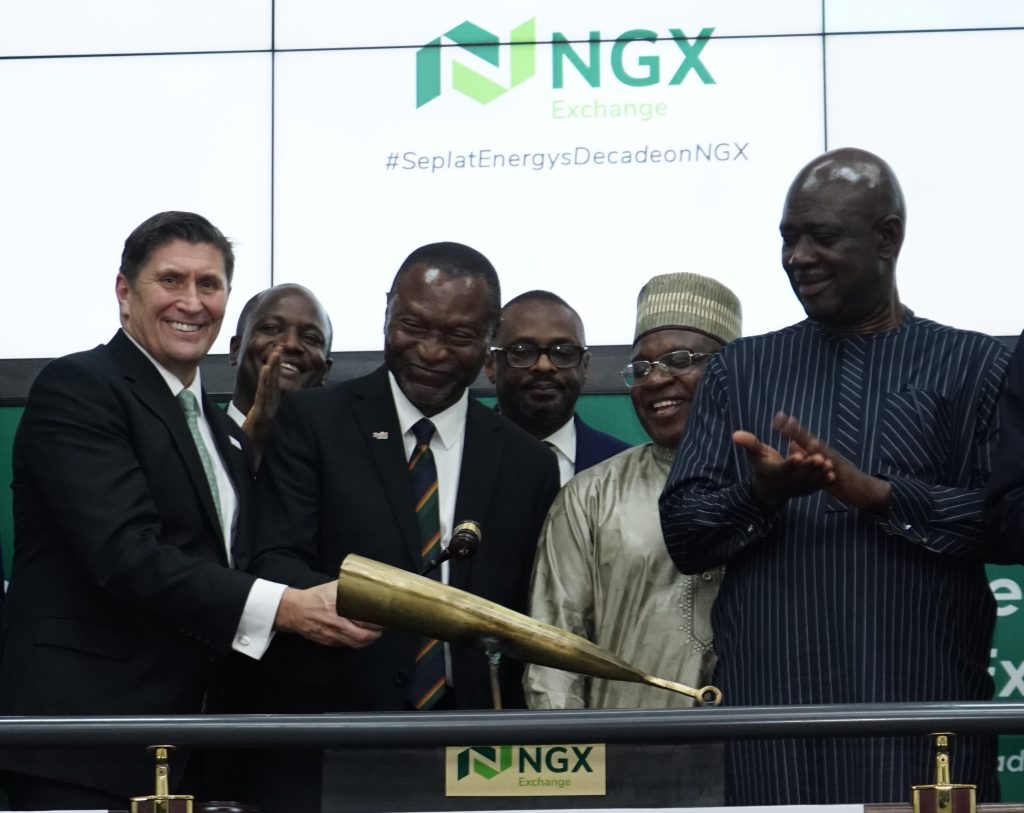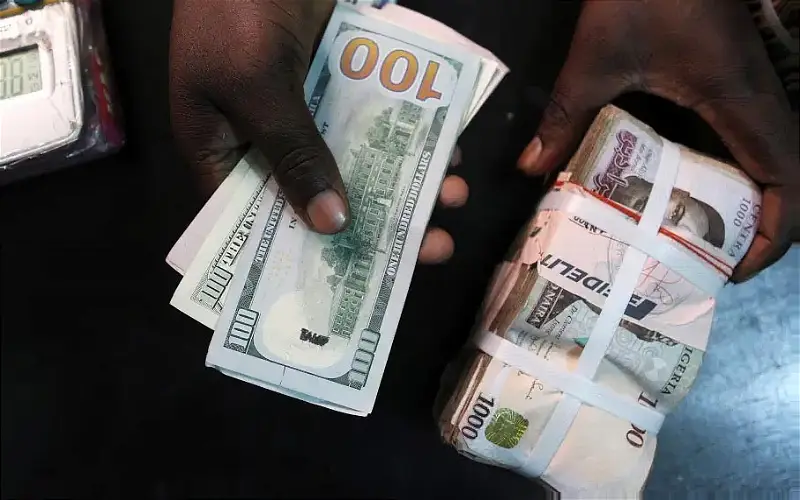Business
Buhari seeks duty-free market access for least developed countries
President Muhammadu Buhari has called on developed and developing nations to grant duty-free and quota-free market access for products originating from the world’s 46 least-developed countries to ensure their integration in regional and global value chains.
Malam Garba Shehu, the President’s spokesman in a statement, said Buhari, who made the call in Doha, Qatar, at the UN Conference of Least Developed Countries, maintained that this had become imperative to ensure their integration in regional and global value chains.
The president strongly criticized the current structure of the global financial system which places an unsustainable external debt burden on the most vulnerable countries.
He warned that such debt burdens would make it extremely difficult for LDCs to meet the 2030 Agenda for Seventeen Sustainable Development Goals (SDGs).
‘‘In 2015, the world came together to endorse the 2030 Agenda for Seventeen Sustainable Development Goals.
”There was no doubt that it was highly ambitious and would require leaders around the world to be fully committed for the SDGs to be achieved within the projected timeframe.
‘‘Eight years on, the possibility of achieving the SDGs remains bleak for many countries, particularly, the Least Developed Countries.
”The difficulties in achieving the SDGs are numerous and were further compounded by the COVID-19 pandemic, the continued threat of Climate Change, and recently the Russia-Ukraine conflict.
‘‘The Least Developed Countries are often faced with developmental vulnerabilities and challenges that are not always of their making.
”These pose huge obstacles to their development efforts, hence the need for urgent and robust assistance to help unlock their potentials and build socio-economic resilience.”
According to him, this assistance can be provided within the framework of the Doha Programme of Action which is designed to help LDCs exit their current classification.
The Nigerian leader challenged developed countries, civil society actors, the private sector, and the business community, to partner with the LDCs in order to provide necessary resources and capacity to deliver development outcomes in the economic, social, and environmental aspects of the 2030 Agenda.
He listed some measures that would help LDCs recover from COVID-19, achieve SDGs, develop and prosper over the long term.
‘‘As a matter of urgency, there are a number of priorities we have to focus on to help achieve the SDGs in these countries and ensure their prosperity.
”First, COVID-19 has taught us that we must all work together, to ensure that diseases do not thrive in the LDCs, due to their overall negative impact on productivity and economic growth and development.
‘‘Accordingly, policy and budgetary provisions must be made to ensure equal access to medicare and vaccines, for both the poor and the rich alike.
”We must also work with manufacturers of medical equipment and pharmaceutical companies to provide adequate equipment, test-kits, vaccines and treatments for diseases.’’ he said.
While expounding on the issue of rising debt burden, Buhari underscored the need for reforms of the international financial architecture that prioritizes the need of Least Developed Countries.
He aligned with the United Nations Secretary-General’s description on the global financial system as an “unfair debt architecture that not only charges poor countries much more money to borrow on the market than advanced economies, but downgrades them when they even think of restructuring their debt or applying for debt relief.”
On trade issues, the president said: ”It is important to put in place modalities to facilitate transit cooperation, transfer of technologies, and access to global e-commerce platforms, as they are critical for the integration of LDCs into the regional and global value chains and communications technology services.
‘‘The adoption of a global coordination mechanism to systematically monitor illicit financial flows and engender support for a United Nations International convention on tax matters to eliminate base erosion and profit shifting, tax evasion, capital gains tax and other tax abuses is essential to achieving the SDGs and promoting security and economic prosperity,’’ he stressed.
On Nigeria’s expectation for the Conference, Buhari expressed optimism that the Doha Programme of Action would lead to the acceleration of exports from LDCs by 2031, through the facilitation of their access to foreign markets in line with World Trade Organization Facilitation Agreement.
On climate change, according to Buhari, LDCs continue to suffer disproportionately despite contributing least to its causes.
He added that countries must prioritize cutting global emissions and work with determination to hold warming to 1.5 degrees, thereby securing the children’s future.
‘‘We must also commit to helping build resilience in developing countries, while also providing the needed technical as well as financial support for a just transition to renewable energy,’’ he said.
According to him, climate change remains one of the biggest existential threats facing humanity today, posing challenges to lives and livelihoods, and manifesting in different negative forms, including increase in temperature, rise in sea levels, flooding, drought, and desertification.
‘‘It has also led to significant loss of biodiversity. Worst still, climate change has exacerbated conflicts and led to unplanned migration, causing untold hardship in places like the Lake Chad Basin region.
‘‘The Least Developed Countries therefore continue to suffer disproportionately from the effects of climate change, despite contributing the least to its causes.
”Deaths from climate related crises are higher in the most vulnerable countries, with projections that there will continue to be an upward trend.
‘‘We must continue to focus on how best to ensure the provision of security, education, health and other basic services to our people, in order to guarantee a prosperous future for all,’’ he said.
Buhari commended the State of Qatar for hosting the Conference and thanked Sheikh Tamim Bin Hamad Al Thani, the Emir, for inviting him.
He also expressed appreciation to the UN for its excellent organisation of the conference and its continued support for the LDCs.
The president also explained his presence at the conference despite the fact that Nigeria is not categorised as one of the Least Developed Countries.
‘‘Nigeria is here to show solidarity and support to the LDCs in the quest to achieve the Sustainable Development Goals, especially in this decade of action, where no one should be left behind,’’ he said. (
Business
Seplat Energy celebrates a decade of Dual Listing with Bell Ringing Ceremony at Nigerian Stock Exchange

[L-R: Mr. Roger Brown, CEO Seplat Energy Plc; Mr. Temi Popoola, Group CEO, Nigerian Exchange (NGX) Group; Mr. Udoma Udo Udoma, Board Chairman, Seplat Energy Plc; Mr. Jude Chiemeka, Ag. CEO, NGX; Alhaji (Dr.) Umaru Kwairanga, Group Chairman, NGX Group; Sen. Heineken Lokpobiri, Hon. Minister of State for Petroleum Resources (Oil), at the NGX Closing Gong Ceremony to mark a Decade of Listing of Seplat Energy on the NGX and the London Stock Exchange … on Tuesday]
The Nigerian Exchange (NGX) reverberated with the jubilant sound of the bell as Seplat Energy PLC, a leading independent indigenous energy company, celebrates a significant milestone – a decade of its dual listing on both the Premium Board of the Nigerian Exchange (NGX) and the Main Market of the London Stock Exchange (LSE). This commemorative event, attended by esteemed representatives from Seplat Energy, the NGX, the Nigeria government, and other institutional partners, marks a decade of strategic partnership and commitment to excellence in the energy sector.
During his speech at the anniversary, Mr. Roger Brown, CEO, Seplat Energy, expressed delight over the feat, reiterating Seplat Energy’s commitment to leading Nigeria’s energy transition, adding that the power of indigenous companies is to bring growth and prosperity to their home countries and the people. “One example of how Seplat Energy is making an enduring difference to Nigeria and host communities where we operate is that nearly $50m had been invested by our Joint Venture partnerships in communities since our inception to date,” Brown said.
“Truly, Seplat Energy has delivered significant value by enhancing strategic, operational and financial achievements in 10 years as a listed company,” he added.

Sen. Heineken Lokpobiri, Hon. Minister of State for Petroleum Resources (Oil); Alhaji (Dr.) Umaru Kwairanga, Group Chairman, NGX Group; ; Mr. Udoma Udo Udoma, Board Chairman, Seplat Energy Plc; Mr. Roger Brown, CEO Seplat Energy; and Mr. Bello Rabiu, Senior Independent Non-Executive Director, Seplat Energy, lead other Directors and Management of Seplat Energy, at the NGX Closing Gong Ceremony to mark a Decade of Listing of Seplat Energy on the NGX and the London Stock Exchange … on Tuesday
In his comments, Mr. Temi Popoola, CEO, NGX Group, emphasized the significance of Seplat Energy’s decade of dual listing stating, “If we were to look back to our market and tried to find landmarks, the last major landmark you will find in the last ten years is this transaction that we are celebrating today, and the market is very grateful for that”.
Congratulating Seplat Energy on this milestone, in his welcoming remarks, Alhaji (Dr.) Umaru Kwairanga, NGX Group Chairman, highlighted the importance of partnerships between the NGX and companies like Seplat Energy in driving economic growth and development stating that “Seplat’s journey symbolises resilience, innovation, and a commitment to excellence, making them a beacon of corporate governance and operational expertise. Seplat Energy has emerged as a leading indigenous energy company, deeply integrated into Nigeria’s economic landscape and the NGX Group remains committed to supporting companies like Seplat Energy as they drive economic growth and contribute to our nation’s prosperity”.
Reflecting on the significance of the decade of dual listing, Mr. Udoma Udo Udoma, Board Chairman, Seplat Energy remarked, “Seplat Energy is committed to driving Nigeria’s transition to sustainable and affordable energy, harnessing its power to improve lives by transforming the economy. We have ambitious goals. We are investing in Nigeria. We will support the federal government’s energy transition policy, and we will partner with FG in whatever area they want us to do so. That is our commitment. We will grow Seplat while also maintaining the highest standard of corporate governance”.
Also commending Seplat Energy on the decade of listing, Jude Chiemeka, Acting CEO, NGX stressed the importance of the capital market in helping companies raise funds and creating wealth for all, stating that “Seplat Energy was listed at 576 Naira at listing and yesterday it closed at 3,370 which is an increase of over 484%. The figures show that in the last 10 years, the company has paid out $575m in dividend payments to shareholders in Nigeria and London where they are also listed, so this company has given investors a huge opportunity to really participate in wealth creation. Reports show that Nigeria would be among the top 20 countries in the next 25 years, and I think Seplat is poised to be one of the institutions driving growth, prosperity, and inclusion in our nation”.
Also gracing the closing gong ceremony was Sen. Heineken Lokpobiri, Minister of State, Petroleum Resources (Oil), who gave kudos to Seplat Energy on their laudable achievements while also assuring of the Federal Government’s commitment to providing support to the company. “I am happy to be part of today’s celebration and Seplat’s exceptional performance in the last ten years and as Minister of State, Petroleum Resources, I assure that we will partner with Seplat to expand their investments, not only for the benefit of its shareholders, but also for Nigeria. The least the government can do anywhere in the world is to create an environment where companies like Seplat continue to thrive”.
Seplat Energy remains focused on driving value for its shareholders, pursuing strategic acquisitions, and championing sustainable practices in the energy sector, with ongoing projects such as the acquisition of Mobil Producing Nigeria Unlimited and the development of the ANOH Gas processing plant. The company’s diversified portfolio, including eight onshore and shallow water assets strategically located in the Niger Delta region, has enabled it to maximize hydrocarbon production while actively contributing to Nigeria’s energy security and economic development.
Seplat Energy’s robust gas portfolio, highlighted by the ANOH Gas processing plant project, underscores its pivotal role in Nigeria’s transition to gas. This aligns with Nigeria’s broader energy goals, promoting cleaner energy sources, reducing reliance on traditional fossil fuels and driving a greener and more sustainable energy landscape in Nigeria.
With commitment to corporate governance, corporate citizenship, and making significant corporate social investments, as reflected in its rigorous approach to performance assessment and its investment in community development initiatives, Seplat Energy is poised for continued success in the years to come.
Business
Naira Appreciates To ₦1,280/$ At Parallel Market

The naira, on Friday, appreciated to N1,280 per dollar at the parallel section of the foreign exchange (FX) market.
The current FX rate signifies a 5.19 percent appreciation from the N1,350/$ reported on March 27.
Currency traders in Lagos, also known as bureau de change (BDCs) operators, quoted the buying rate of the greenback at N1,260 and the selling price at N1,280 — leaving a profit margin of N20.
“The price of the dollar as well as other major currencies have been falling. It is affecting our business as some customers prefer to keep their currencies than change it with us,” a currency trader identified as Aliyu told TheCable.
At the official section of the FX market, the local currency depreciated by 0.69 percent to N1,309.39/$ on March 28 — from N1,300.43/$ on March 27.
Meanwhile, the Central Bank of Nigeria (CBN), on March 29, said the economy recorded over $1.5 billion in foreign exchange (FX) inflow this month, indicating its monetary policy initiatives are effective.
The apex bank said the naira is headed in the right direction, and the administration of Yemi Cardoso, CBN governor, remains committed to ensuring the stability of the market and the appropriate pricing of the naira against other major currencies worldwide.










